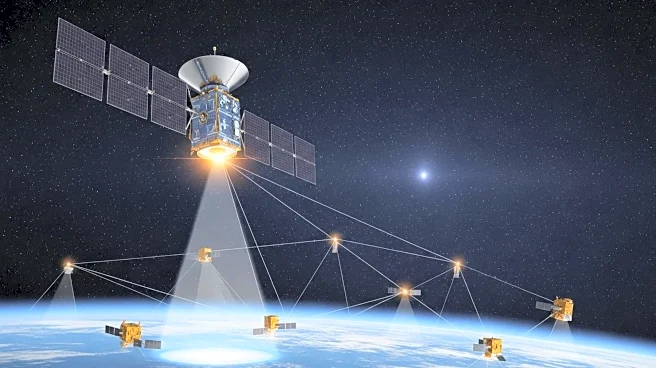What is the story about?
What's Happening?
The U.S. Navy has awarded a $244 million contract to Assurance Technology for research on space-to-ground communications. The contract, known as the Focused Radio Frequency Optimized Signal Transference (FROST) program, aims to develop systems that can transmit energy across the radio frequency spectrum to objects in space. The energy is processed by these objects, and the results are collected for analysis by antennas located globally. This initiative is expected to support the Navy's mission and enhance space operations. Assurance Technology, headquartered in Carlisle, Massachusetts, specializes in advanced RF, optical, processing, and power systems, serving clients such as NASA, NOAA, and the Department of Defense. The Navy is its largest customer, according to USASpending data.
Why It's Important?
This contract signifies a strategic investment by the U.S. Navy in enhancing its space operations capabilities. By developing advanced systems for energy transmission and data collection from space objects, the Navy aims to improve its operational efficiency and technological edge in space communications. This could have significant implications for national security, as enhanced space operations can lead to better surveillance, communication, and defense capabilities. Assurance Technology's involvement highlights the role of specialized private companies in advancing military technology, potentially leading to innovations that could benefit other sectors such as commercial space exploration and telecommunications.
What's Next?
Assurance Technology will begin evaluating current equipment and recommending upgrades or retirements as part of the contract. The development of new systems under the FROST program will likely involve collaboration with other defense and space agencies, including NASA and NOAA. As the project progresses, there may be further opportunities for small businesses to contribute to the technological advancements required for space-to-ground communications. The success of this program could lead to additional contracts and funding for similar initiatives, further strengthening the U.S. military's capabilities in space.
Beyond the Headlines
The FROST program could have broader implications for the future of space exploration and communication technology. By advancing the ability to transmit energy and data across vast distances, this research could pave the way for more efficient and reliable communication systems in space. This could benefit not only military operations but also commercial and scientific endeavors, potentially leading to breakthroughs in how data is collected and analyzed from space. The ethical and legal dimensions of space communication and data collection may also come into focus as these technologies develop.














